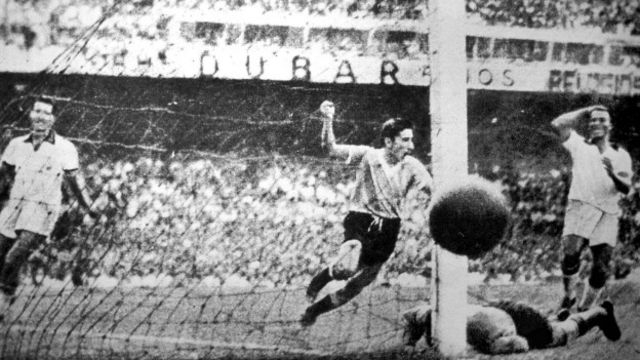Your shopping cart is empty
Zizinho
Zizinho played in the infamous 1950 final between Uruguay and Brazil in the Maracanao stadium in Rio De Janeiro. Uruguay won 2-1 much to the dismay of the home team and the home crowd.

Zizinho, born as Thomaz Soares da Silva, was a Brazilian footballer who played as an attacking midfielder. He was born on September 14, 1921, in Niterói, Brazil, and began his football career with Flamengo in Rio de Janeiro.
Zizinho was widely regarded as one of the best footballers of his generation, and is often mentioned in the same breath as other Brazilian legends such as Pele and Garrincha. He was known for his exceptional dribbling skills, his ability to create chances for his teammates, and his impressive range of passing.
Zizinho played for Brazil in the 1950 and 1954 World Cups, and was a key player in the famous 1950 team that finished as runners-up to Uruguay. He scored two goals in the tournament, and was widely praised for his performances on the pitch.
In his club career, Zizinho played for a number of Brazilian teams, including Flamengo, Bangu, São Paulo, and Botafogo. He also had a brief stint in Italy with the club A.S. Roma.
Zizinho retired from professional football in 1962, and went on to work as a coach and television commentator. He passed away on February 8, 2002, at the age of 80.
Despite his relatively short playing career, Zizinho remains a revered figure in Brazilian football. He was posthumously inducted into the Brazilian Football Museum Hall of Fame in 2003, and his legacy as one of the country's greatest ever players continues to be celebrated to this day.
Generated by ChatGPT, an AI language model trained by OpenAI



